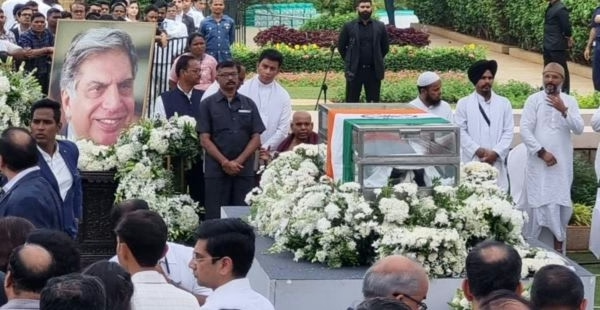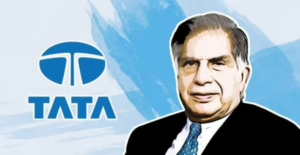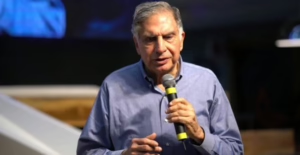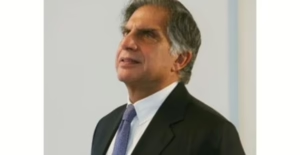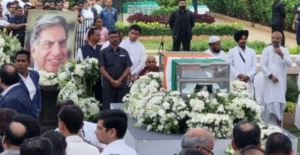
In a heart-wrenching development that has sent shockwaves across India and beyond, Ratan Naval Tata passes away, marking the end of an era for Tata Group and Indian business at large. His demise leaves a profound impact on countless lives and industries. A day of mourning has been declared in Maharashtra, with notable figures such as Home Minister Amit Shah set to attend the last rites. This blog aims to celebrate Ratan Tata’s remarkable life, his contributions to industry and society, and the legacy he leaves behind.
A Life of Purpose
Ratan Tata was born on December 28, 1937, into the illustrious Tata family, known for their pivotal role in the economic development of India. He studied at Cornell University and later Harvard Business School, honing the skills that would allow him to guide Tata Group into the 21st century. However, it was not just his educational background that shaped him; his commitment to ethical business practices and social responsibility set him apart in the corporate world.
Early Years and Career Path
Upon joining Tata Group in 1961, Ratan Tata started from the bottom, working in various capacities to understand the intricacies of the business. His rise to the top came in 1991 when he took over as Chairman. Under his leadership, Tata Group transformed into a global powerhouse, expanding its footprint in various sectors, including steel, automobiles, information technology, and telecommunications. This transformation exemplified the essence of Tata Group leadership, characterized by innovation and strategic growth.
Visionary Leadership
One of Tata’s most significant contributions was his ability to adapt to changing times. He spearheaded several landmark projects, including the launch of the Tata Nano in 2008, aimed at providing affordable transportation to the masses. Despite facing challenges, his vision for innovation and inclusivity helped redefine the automobile market in India.
Tata also emphasized the importance of corporate governance, ethical practices, and sustainability. His commitment to these values not only enhanced the reputation of Tata Group but also set benchmarks for other companies in India and around the world.
Philanthropy: A Heart for the Nation
Beyond business, Ratan Tata was a passionate philanthropist. The Tata Trusts, which hold a significant share of Tata Group’s assets, have been instrumental in various social initiatives, focusing on education, healthcare, and rural development. Philanthropy in India flourished under his leadership, as he believed that businesses should not just seek profit but also contribute positively to society.
His initiatives have transformed the lives of millions. From supporting cancer treatment facilities to promoting education for underprivileged children, Ratan Tata’s philanthropic efforts have been far-reaching. His belief in uplifting society echoes in his famous words: “I do not believe in taking right decisions. I take decisions and then make them right.”
Impact on Society
Ratan Tata’s impact extended beyond the corporate world. His approachable demeanor and willingness to engage with the youth have inspired many to pursue careers in business and entrepreneurship. He often shared his insights on leadership and the importance of ethical practices, becoming a mentor to countless young leaders.
His influence can be seen in the increasing emphasis on corporate social responsibility in Indian businesses. Companies are now expected to play a role in community development, a shift largely influenced by Tata’s principles.
Global Recognition
Ratan Tata’s contributions have not gone unnoticed on the global stage. He has received numerous awards and accolades, including the Padma Bhushan and Padma Vibhushan, India’s second and third highest civilian honors. His leadership style and business acumen made him a sought-after speaker at international forums, where he consistently advocated for sustainable development and ethical business practices.
Mourning and Tributes
The news of Ratan Tata’s passing has sparked an outpouring of grief from all corners of the globe. Maharashtra has declared a day of mourning to honor a man who dedicated his life to the betterment of society. Amit Shah’s attendance at the last rites signifies the national recognition of his contributions, reflecting the profound loss felt by the nation. The Ratan Tata tributes pouring in from various sectors underscore the deep admiration and respect he commanded.
Messages of Condolence
Prominent figures from various sectors have shared their condolences. Business leaders, politicians, and celebrities have taken to social media to express their grief and admiration. Many have shared personal anecdotes of how Ratan Tata influenced their lives or careers, emphasizing his legacy of kindness and integrity.
A Legacy to Uphold
As the nation mourns the loss of Ratan Tata, it is essential to reflect on his legacy. He was more than just a business magnate; he was a visionary who believed in the power of ethical business practices and social responsibility. His contributions to industry, philanthropy, and society will be remembered for generations to come.
The challenge now lies in upholding the values he championed. The business community must strive to emulate his commitment to integrity, innovation, and inclusivity. By doing so, we can honor Ratan Tata’s memory and ensure that his legacy continues to inspire future generations.
Ratan Naval Tata may have left this world, but his spirit will live on in the hearts of those he touched and the lives he transformed. As we bid farewell to a great leader, let us carry forward his vision for a better, more equitable society.

